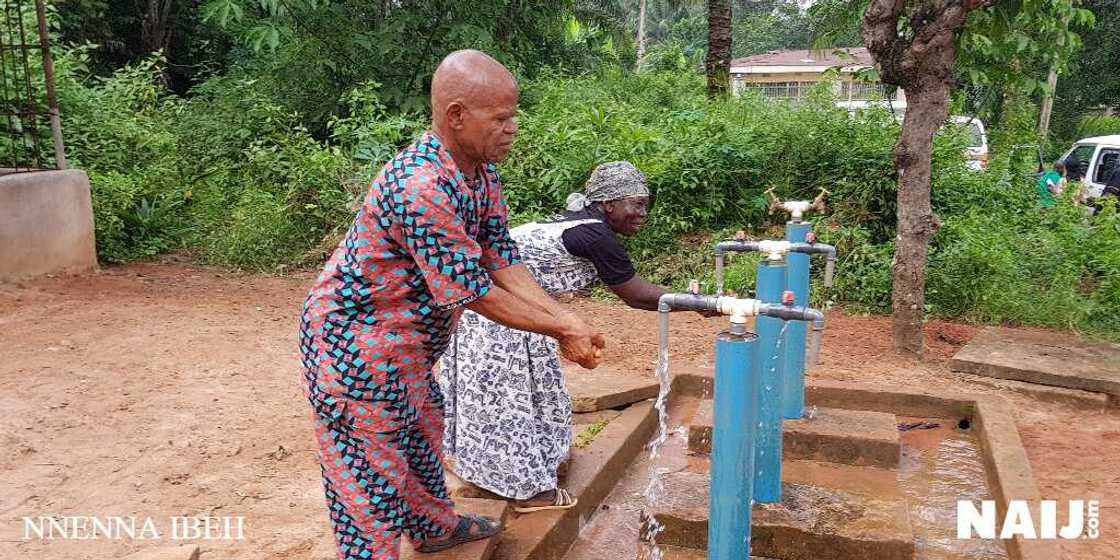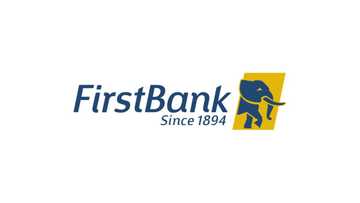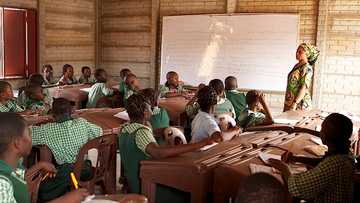Open defecation: EU commissions water, sanitation facilities in 2 states
- About one million people in two states in the northwestern region of Nigeria now have access to Water, Sanitation and Hygiene services
- The WASH facilities in six local government areas of Kano and Jigawa states were provided and commissioned by the European Union in partnership with UNICEF and the Nigerian government
- The facilities will help provide access to affordable WASH facilities to residents of the communities and as well deliver a ripple effect on the plan have an Open Defecation Free (ODF) environment by 2025
The European Union has commissioned water and sanitation projects in six local government areas of two states in the northwestern region of Nigeria.
The commissioning of the projects is in line with Nigeria's effort to meeting the Sustainable Development Goal 6 which is ensuring a universal, affordable and sustainable access to Water, Sanitation and Hygiene (WASH) - a key public health issue within the international development sector.
A statement by Rabiu Musa, UNICEF's communication specialist on Thursday, January 30, said about one million resident of communities in the six local government areas in Kano and Jigawa state will benefit from the WASH facilities.
The statement said the facility built with support from the EU will ensure that Nigerians across these state and beyond have access to affordable WASH facilities.
This, in turn, is expected to help deliver a ripple effect on the plan have an Open Defecation Free (ODF) environment by 2025.
While the WASH National Outcome Routine Mapping (WASH NORM) report shows that 47 million Nigerians practise open defecation, only 11% of Nigerians have access to complete basic water, sanitation and hygiene services.
It should also be noted that only 13% of schools in Nigeria have access to basic water and sanitation services.
According to the statement, the lack of WASH facilities in schools have posed a serious concern as children who do not have access to water, are most likely to lose interest in pursuing learning opportunities because they are forced to spend more time in search for water during school hours or stay out of school to recover from illness caused by frequent episodes of diarrhoea and other diseases.
Also, more than 100,000 children under the age of five years die each year due to water-borne diseases like diarrhoea, of which 90% is directly attributed to unsafe water and sanitation.
Stating that access to clean drinking water is a human right - just like the right to food and the right to live without torture and racial discrimination - the statement said ending open defecation and making WASH services available to all Nigerians is one of the biggest challenges faced in the country.

Source: UGC
It noted that the construction and management of these facilities require sustained investments and more partnerships, especially with the private sector.
"The Nigeria Government should invest three times more in the water sector making sure that every Nigeria has access to clean water and a toilet as the lack of access to water is impacting the wellbeing especially of the most vulnerable," the statement said.
The EU, through UNICEF, is supporting the Nigerian government to achieve the objectives of the national campaign on open defecation free Nigeria which was launched last year and the state of emergency declared on the WASH sector by the President in 2018.
The EU-funded programmes support WASH projects in urban and rural areas through the provision of water schemes, technical assistance and capacity development to sector institutions and agencies responsible, and improved access to safe water, adequate sanitation and hygiene services in communities.
Also, the EU has invested more than 250 million Euros in the Nigerian water sector with an aim to improving the WASH conditions of more than 10 million people in 14 states across the country.
Meanwhile, Legit.ng previously reported that the Benue state government has linked the death of four people in Obi local government area of the state by a strange illness to the consumption of a chemically contaminated water.
PAY ATTENTION: Get the Latest Nigerian News Anywhere 24/7. Spend less on the Internet!
The Benue state commissioner for health and human services, Sunday Ongbabo, said residents of the area have been urged to, as a matter of urgency, look for another source of water for drinking and other domestic use.
The incident also led to the hospitalisation of 15 other people who Ongbabo said are currently being monitored at the Benue State University Teaching Hospital (BSUTH) in Makurdi.
NAIJ.com (naija.ng) -> Legit.ng: Same great journalism, upgraded for better service!
Slum Chronicles: We pay 5k for houses without toilets, bathroom on Legit TV
Source: Legit.ng




